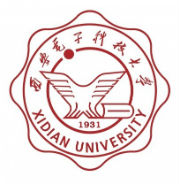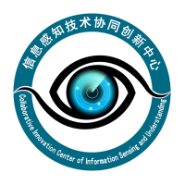Keynotes
Listed in alphabetical order
Keynote Speaker 1

Prof. Y. Thomas Hou (Tom Hou)
IEEE Fellow
Bradley Distinguished Professor of Electrical and Computer Engineering
Virginia Tech, Blacksburg, VA, USA
Achieving Optimal Performance for Programmable Wireless Networks
Abstract
Traditionally, achieving optimal performance for a distributed multi-hop wireless network is known to be difficult, if not possible. In recent years, advances in programmable physical layer (PHY) and decoupling of data and control planes motivate us to reconsider the possibility of performing global optimization directly for multi-hop wireless networks. This idea is further fueled by the fact that powerful computing resource is becoming readily available in the cloud and complex optimization problems may now be solved efficiently in real-time. These exciting trends have reinvigorated a new pursuit of optimal solutions to complex cross-layer optimization problems. In this talk, I will focus on some case studies on how the new centralized control plane allows us to achieve optimal performance on the data plane. In the first example, we consider a throughput maximization problem in multi-hop MIMO networks. The key challenge here is to efficiently use MIMO’s degree-of-freedom (DoF) resources in a network-wide setting to maximize throughput for communications sessions. In the second example, I will describe how a centralized control paradigm can help improve spectrum coexistence between multi-hop primary and secondary networks.
Biography
Tom Hou is the Bradley Distinguished Professor of Electrical and Computer Engineering at Virginia Tech, USA. His research interests are to develop innovative solutions to complex cross-layer optimization problems in wireless networks. He is particularly interested in exploring new limits of network performance by exploiting advances at the physical layer and other new enabling technologies.
Prof. Hou was named an IEEE Fellow for contributions to modeling and optimization of wireless networks. He has published two textbooks: Cognitive Radio Communications and Networks: Principles and Practices (Academic Press/Elsevier, 2009) and Applied Optimization Methods for Wireless Networks (Cambridge University Press, 2014). The first book has been selected as one of the Best Readings on Cognitive Radio by the IEEE Communications Society. Prof. Hou’s research was recognized by five best paper awards from the IEEE and two paper awards from the ACM. He holds five U.S. patents.
Prof. Hou was an Area Editor of IEEE Transaction on Wireless Communications (Wireless Networking area), and an Editor of IEEE Transactions on Mobile Computing, IEEE Journal on Selected Areas in Communications – Cognitive Radio Series, and IEEE Wireless Communications. Currently, he is an Editor of IEEE/ACM Transactions on Networking and ACM Transactions on Sensor Networks. He is the Steering Committee Chair of IEEE INFOCOM conference and a member of the IEEE Communications Society Board of Governors. He is also a Distinguished Lecturer of the IEEE Communications Society.
Keynote Speaker 2
_show.jpg)
Prof. Jiandong Li
Vice President of Xidian University
Chair of IEEE ComSoC Xi'an Chapter
Senior member of IEEE and China Institute of Electronics (CIE)
Fellow of China Institute of Communication (CIC)
Are the Wireless Networks Ready for User Generated Content (UGC) Era?
Abstract
User Generated Content (UGC) is the most popular service of the current popular smartphones or personal IT terminals and has been steadily increasing in recent years. Its current state is first reviewed. Different from the traditional traffic, the UGC can be re-edited by users and has the characteristics of large volume, high burstiness, shorter duration, which make the mobile networks facing the new challenges. In this talk, we will discuss these new challenges of UGC on wireless networks, and present the architecture for future 5G mobile networks. The typical scenarios of UGC are given for cooperative downloading and uploading contents. We will address how to management the resource flows and interference in wireless UGC Era.
Biography
Prof. Jiandong Li graduated from Xidian University with Bachelor Degree, Master Degree and Ph.D respectively in 1982, 1985 and 1991 respectively. He is with Xidian University from 1985. He was an associate professor from 1990 to 1994. He is a professor of Xidian University from 1994 and Ph.D. supervisor from 1995. He was Dean of School of Telecommunication Engineering from 1997 to 2006 and Executive Vice Dean of Graduate School of Xidian University from 2007 to 2012 and a visiting professor of Cornell University from Jan. 2002 to Jan. 2003. He is the Vice President of Xidian University from July 2012. He is the Chair of IEEE ComSoC Xi'an Chapter.
Prof. Li is Changjiang Scholar and was awarded the National Science Fund of China for Distinguished Young Scholars. He is a senior member of IEEE and China Institute of Electronics (CIE) and the fellow of China Institute of Communication (CIC). He was the member of PCN (Personal Communications Networks) specialist group for China 863 Communication High Technology Program from Jan. 1993 to Oct. 1994 and from 1999 to 2000. He is also a member of broadband wireless mobile communication specialist group and Director of Broadband Wireless IP Standard Work Group for The Ministry of Industry and Information Technology. He has published five books and more than 100 papers. His research interests include future wireless communications, cognitive wireless networks and systems.
Keynote Speaker 3

Prof. Witold Pedrycz
IEEE fellow
EiC of Information Sciences
Canada Research Chair
Systems Research Institute, Polish Academy of Sciences, Warsaw, Poland
Mining in Social Multimedia: A Framework of Granular Computing
Abstract
Mining of multimedia data (streams), often related with a comprehensive characterization and detection of events of interest, becomes a challenging endeavor. The complexity of such tasks of mining is implied by the inherent diversity of the involved modalities of the collected data and a semantically rich nature of the undertaken pursuits.
It becomes apparent that human-centric aspects of the mining activities have to be taken into account. In essence, data, events and relationships between them are comprehended and described with the aid of some semantically sound entities – information granules.
The proposed concepts and ensuing architecture are hierarchical and comprise three key level of the hierarchy. At the lowest level, numerical data originating from different modalities are represented in terms of information granules built in the corresponding spaces (universes). At the higher level of the hierarchy, these information granules are structured into a collection of concepts (being formed as logically oriented formulas operating on the information granules present at the first level of the hierarchy). The concepts could be defined in advance and afterwards might be subject to learning and further refinements. At the highest level of the hierarchy, relationships among the concepts are determined and a formation of events and their temporal and spatial dependencies is discovered. It is demonstrated that the hierarchical processing realized in a form outlined above leads in a natural way to the emergence of information granules of higher type and higher order.
To make the presentation self-contained, a concise introduction to the principles and the development methodology of Granular Computing is provided. It includes a brief exposure to the diversity of formal ways of formalizing and constructing information granules.
Biography
Witold Pedrycz is Professor and Canada Research Chair (CRC) in Computational Intelligence in the Department of Electrical and Computer Engineering, University of Alberta, Edmonton, Canada. He is also with the Systems Research Institute of the Polish Academy of Sciences, Warsaw, Poland. He also holds an appointment of special professorship in the School of Computer Science, University of Nottingham, UK. In 2009, Dr. Pedrycz was elected a foreign member of the Polish Academy of Sciences. In 2012 he was elected a Fellow of the Royal Society of Canada. Witold Pedrycz has been a member of numerous program committees of IEEE conferences in the area of fuzzy sets and neurocomputing. In 2007 he received a prestigious Norbert Wiener award from the IEEE Systems, Man, and Cybernetics Council. He is a recipient of the IEEE Canada Computer Engineering Medal 2008. In 2009 he has received a Cajastur Prize for Soft Computing from the European Centre for Soft Computing for "pioneering and multifaceted contributions to Granular Computing". In 2013 he was awarded a Killam Prize and received a Fuzzy Pioneer Award 2013 from the IEEE Computational Intelligence Society.
His main research directions involve Computational Intelligence, fuzzy modeling and Granular Computing, knowledge discovery and data mining, fuzzy control, pattern recognition, knowledge-based neural networks, relational computing, and Software Engineering. He has published numerous papers in this area. He is also an author of 15 research monographs covering various aspects of Computational Intelligence, data mining, and Software Engineering.
Dr. Pedrycz is intensively involved in editorial activities. He is an Editor-in-Chief of Information Sciences, Editor-in-Chief of WIREs Data Mining and Knowledge Discovery (Wiley) and Co-Editor-in Chief of Granular Computing (Springer). He also currently serves as an Associate Editor of IEEE Transactions on Fuzzy Systems and is a member of a number of editorial boards of a number of international journals in the area of Computational Intelligence and intelligent systems.
Keynote Speaker 4

Dr. Anand R. Prasad
Chief Advanced Technologist
Executive Specialist
NEC Corporation, Japan
Mobile Security and Standardization
Abstract
Mobile communication is life-line of human society as, also, spelled by several governments globally by declaring communication systems as critical infrastructure. This shows that implication of security breach on mobile systems is beyond loss of revenue. Thus security issues in mobile communication systems are of major concern. It is also a fact that security is the core on which mobile communications business relies.
With the above in mind, this presentation will cover most recent mobile communication standardization efforts towards systems architecture and security. The presentation will also highlight potential security issues and solutions. The main focus from standardization perspective will be on the activity in 3GPP where work has been recently completed on public safety aspects and standardization activity on IoT and next generation or 5G security is on-going.
Biography
Anand R. Prasad, Dr. & ir. (MScEngg) from Delft University of Technology, The Netherlands, is Chief Advanced Technologist, Executive Specialist, at NEC Corporation, Japan, where he leads the mobile communications security activity. Anand is the chairman of 3GPP SA3, founder chairman of the GISFI Security & Privacy group and member of the governing body / council member of GISFI and TSDSI. He has 20+ years of experience in networking, wireless and mobile communications product design, development and business development in companies around the globe.
Anand has published 6 books and authored 50+ peer reviewed papers in international journals and conferences. Two of the books he co-authored on security are “Security in Next Generation Mobile Networks SAE/LTE and WiMAX”, published by River Publishers, and “Security for Mobile Networks and Platforms”, published by Artech House. He is a series editor for standardization book series and editor-in-chief of the “Journal of ICT Standardization” published by River Publishers.
He is recipient of the 2014 ITU-AJ “Encouragement Award: ICT Accomplishment Field” and the 2012 (ISC)² “Asia Pacific Information Security Leadership Achievements (ISLA) Award as a Senior Information Security Professional”. Anand is a certified information systems security professional (CISSP).
Keynote Speaker 5

Prof. Jian Ren
Beyond Mobile Resource Constraints -- Cost-Aware Secure Mobile Computation Outsourcing
Abstract
Mobile computing is increasingly becoming an integral part of our daily life due to the rapid development in mobile processors and the ubiquity of high-speed wireless networks. While the potential applications for mobile devices seem to be unlimited, the resource constraints of mobile devices have become a major bottleneck for computationally intensive mobile operations and large file management, especially when security and user privacy are considered. Cloud computing and multimedia mobile services are viewed as two of the most significant recent technology trends. Mobile cloud computing (MCC) is a unique combination of these two trends. It is being viewed as the future of mobile in that it enables both the data processing and the data storage happen outside of the mobile devices. The available resources for mobile devices are no longer limited to the physical mobile devices for computing, data process and storage. The existing mobile applications today still conduct most of the data processing and storage on the mobile devices instead of outsourcing to the cloud, primarily due to lack of infrastructure and security mechanisms to enable cloud computing in a shared infrastructure. As a result, once the tasks are outsourced to the cloud, the end-users will lose control of their data and process, which may result in severe security issues especially when the data is sensitive. For MCC, security is much more than just a technical issue; instead, it is an enabler and prerequisite. In this talk, we will investigate cost-aware secure mobile computation outsourcing. We will introduce our recent work in three interconnected areas. First, we will discuss the general cost-aware (linear and non-linear) computational problem outsourcing, as well as outsourcing of the computationally intensive cryptographic operations. Second, for location-based applications, we will discuss a security and privacy protection problem formulation, and our proposed secure problem outsourcing solutions. Finally, we will discuss the optimal storage outsourcing in terms of storage efficiency and reliable data recovery under hostile attacks. The proposed research enables the available resources of mobile devices be extended well beyond the physical boundary of the mobile devices, which will make many mobile applications practical and secure.
Biography
Jian Ren received the BS and MS degrees both in mathematics from Shaanxi Normal University, in 1988 and 1991 respectively. He received the Ph.D. degree in EE from Xidian University in 1994. From 1997 to 1998, he worked as a technical advisor and security architect at Racal Datacom, Fort Lauderdale, Florida. He was a security architect from 1998 to 2002, first with Lucent Technology and then with Avaya, Holmdel, NJ. Currently, he is an Associate Professor in the Department of ECE at Michigan State University, East Lansing, MI.
His most recent research interests include network security, cost-aware security protocol design, privacy-preserving communications, cloud computing and smart home/grid. His group recently developed a hardware secure access gateway to enable remote managing and monitoring of ZigBee enabled devices using a mobile phone, protected through one-time login and one-time password based secure access control. Dr. Ren has been the principle investigator of eight NSF funded projects, including the US National Science Foundation Faculty Early Career Development (CAREER) award in 2009. He is a senior member of the IEEE. He served as the TPC co-chairs for IEEE Trustcom 2014 and Chinacom 2011. He is serving as the TPC Chair of IEEE ICNC 2017 and will serve as the General Chair for IEEE ICNC 2018.












































